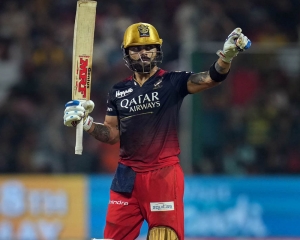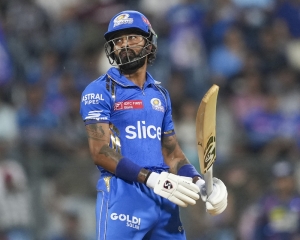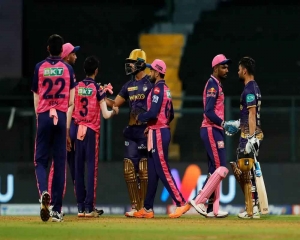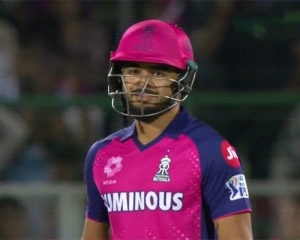As consumers of digital content, it is crucial to discern between genuine discourse and agenda-driven narratives
Today’s warfare is increasingly characterised by information warfare tactics. Social media serves as an ideal weapon for conducting modern conflicts where the battle for narratives and perceptions plays a crucial role in shaping outcomes. In this digital context, the emergence of Pakistani YouTubers has garnered significant attention in India over the past five years. Their channels span various genres from reaction videos to those featuring interactions with common people in Pakistan and podcasts and discussions on geopolitics. However, a closer look reveals a subtle yet concerning trend in their content.
Initially, these YouTubers sought to attract Indian viewership by praising India unabashedly. They lauded India’s policies and economic growth and even expressed admiration for Prime Minister Modi and the BJP. Their narratives echoed sentiments of unity and regret over the partition, portraying India’s economic liberalisation in the 1990s as a commendable move. This strategic approach garnered them millions of Indian subscribers. Even educated Indians appreciated such rare, seemingly sane views and analyses from Pakistani youth.
At first, it was perplexing to witness the sudden change in tune from Pakistan, a country historically marred by animosity towards India. Suddenly, Pakistani YouTubers were singing praises for Jawaharlal Nehru as the best Prime Minister and socialism as the ideal policy for India. This abrupt shift raised eyebrows, especially considering Pakistan’s track record of hostility towards India over the past 70 years. So, it begged the question how was it that Pakistanis have only now discovered virtues in Indian leaders and policies that they previously overlooked or actively opposed? But still, these YouTubers were embraced by Indians with open arms, evident from the predominance of views and comments on their videos from India.
However, as time passed, their mask began to unravel. Channels focusing on geopolitics gradually began to push their agenda subtly. Considering Pakistan’s precarious economic situation, these YouTubers advocated for the resumption of trade with India which was halted by their Prime Minister Imran Khan in 2019 as a protest against India’s decision to revoke Article 370 in Kashmir. They openly criticised Imran Khan’s decision, labelling it as foolish given the adverse impact it had had on Pakistan’s economy.
However, recently when the Indian Government did not reciprocate to the India-Pak trade agenda, these YouTubers’ tones shifted dramatically towards anti-India and pro-China propaganda. Suddenly, they started painting India as a regressive Hindu country with an authoritarian Government where minorities as well as the democracy are allegedly in grave danger. Now, they consistently invite guests onto their channel providing them with a platform to perpetuate anti-India and anti-Indian narratives.
It is striking how these Pakistani YouTubers seldom address the pressing issues within their own country. They seem conspicuously silent on the plight of minorities particularly the violence perpetrated against them. While they are quick to produce videos condemning alleged injustices against Muslims in Palestine and India, they conveniently overlook similar atrocities within Pakistan.
Some YouTubers remain silent on the oppression of Muslims in China, despite evidence of human rights abuses against Uighur Muslims in Xinjiang. This raises questions about the sincerity of their activism and suggests geopolitical influences on their narrative.
Furthermore, it is noteworthy that these Pakistani YouTubers also openly criticise their Government and army, a rarity in Pakistan where dissent against the establishment is often met with severe repercussions. This raises suspicions about their affiliations, true intentions and ulterior motives behind their digital presence. One cannot help but wonder if these YouTubers are planted by some foreign agencies to serve as mouthpieces for their agenda.
Here, the concern is that many Indian youths, unaware of this shift, continue to consume their content, inadvertently perpetuating the agenda. Many Indian intellectuals and geopolitical experts have begun to criticise these YouTubers for their manipulative tactics. Interestingly, this manipulation is not only limited to India but has been extended to Bangladesh too as these podcasters churn out videos portraying the 1971 war as a mistake. They label West Pakistan’s attempt to suppress and colonise East Pakistan as evil and this new narrative aims to attract Bangladeshi viewers first and subtly push their agenda later.
In the era of information, overload critical thinking is our best defence against manipulation.
Hence, it is imperative to recognise and address this subtle propaganda and analyse the content the Indians consume. As consumers of digital content, it is crucial to discern between genuine discourse and agenda-driven narratives.
Everyone needs to realise and understand that India stands for peace and brotherhood but not at the expense of its national security.
(The writer is an academician; views are personal)

























